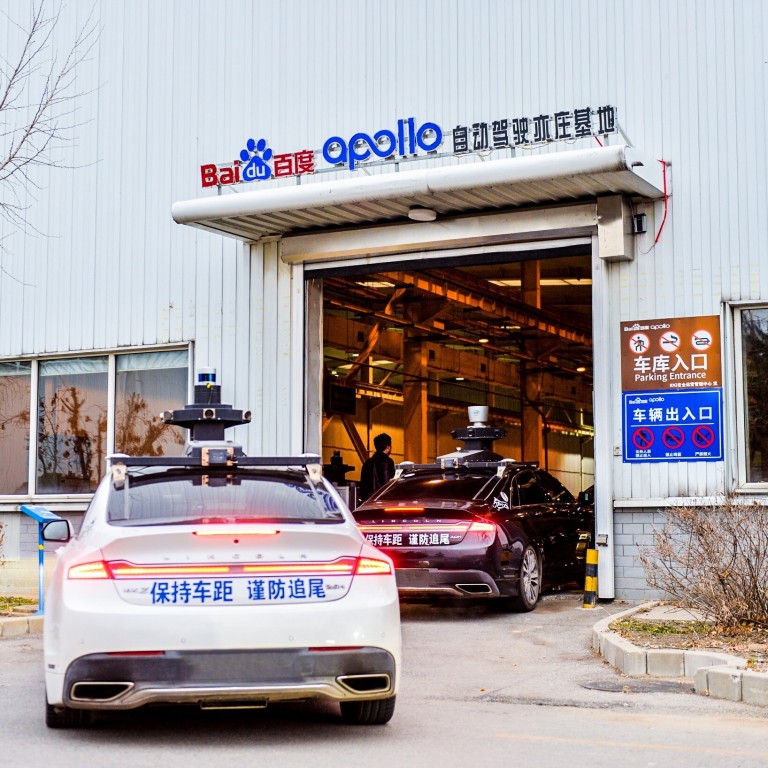
Explainer | These Chinese autonomous vehicle start-ups are keeping their eye on the driverless road
- The promise of a driverless future has attracted billions of dollars in investment globally
- The global autonomous driving market is forecast to be worth US$24.3 billion by 2025, up from only US$4 billion in 2016
In the car industry, the dream of high-level automation free from human intervention is as strong as ever. The concept dates back eight decades to when American industrial designer Norman Bel Geddes demonstrated an electric vehicle manipulated by electromagnetic fields created by placing electronic circuits along a roadway at the 1939 World’s Fair.
Bel Geddes later presented his vision of future mobility in a 1940 book titled Magic Motorways, where he argued that humans should be removed from the driving process.
Given the pace of today’s technology development, his vision could become a reality over the next decade. The promise of a driverless future has attracted billions of dollars in investment globally and is becoming one of the key applications for artificial intelligence in which both China and the US are seeking supremacy.
In December 2017, Beijing became the first Chinese city to introduce regulations for autonomous driving road tests, followed by Shanghai in March 2018. In April last year, Chinese authorities issued the first national-level regulations for such road tests.
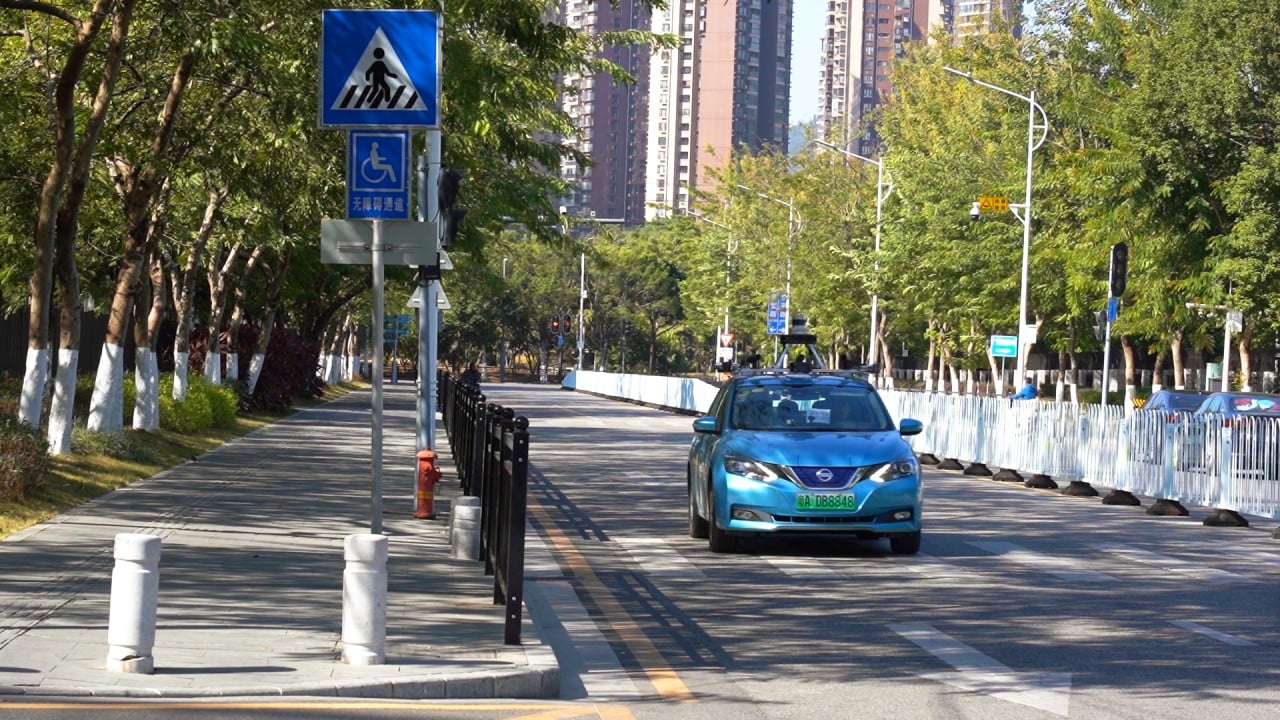
03:06
China’s self-driving RoboTaxi hits the road
China outlined its road maps to smart cars and mobility systems in February in a blueprint co-developed by 11 ministries, with the goal of achieving mass production of lower level autonomous vehicles by 2025.
The global autonomous driving market is forecast to be worth US$24.3 billion by 2025, up from US$4 billion in 2016. In the US, Alphabet subsidiary Waymo is leading the pack that includes traditional players Ford Motor with its autonomous division and General Motors’ Cruise, as well as start-ups such as Zoox and Uber Technologies.
AutoX wins coveted driverless car permit for tests in California
Telsa boss Elon Musk, a fast growing disrupter in the global mobility industry, said last month that his company is close to achieving fully autonomous driving, known as L5.
The leading Chinese players listed below are focused on bringing autonomous vehicles to the consumer passenger market, while specialists like autonomous truck start-up TuSimple is targeting operations for service and logistics companies.
AutoX
Hong Kong-based start-up AutoX recently won a permit from the California Department of Motor Vehicles to start testing fully driverless cars in designated areas in San Jose, California – the first Chinese company to receive such approval.
The company rolled out its robotaxi fleet in the Jiading district of Shanghai in April after setting up an 80,000-square feet robotaxi operation centre in the financial hub. Like WeRide, its on-demand robotaxi service is available via the mapping service app AutoNavi.
AutoX holds open road testing licenses in four US states (including California) and in major Chinese cities including Shanghai, Shenzhen, and Guangzhou. It was also granted approval to operate robotaxis in a geofenced area in the city of Wuhan, ground zero for the Covid-19 pandemic.
Founded in 2016 by Xiao Jianxiong, a former assistant professor at Princeton University, AutoX counts Alibaba Group, MediaTek, Chinese carmaker Shanghai Auto and Dongfeng Motor among its backers. Alibaba owns the South China Morning Post.
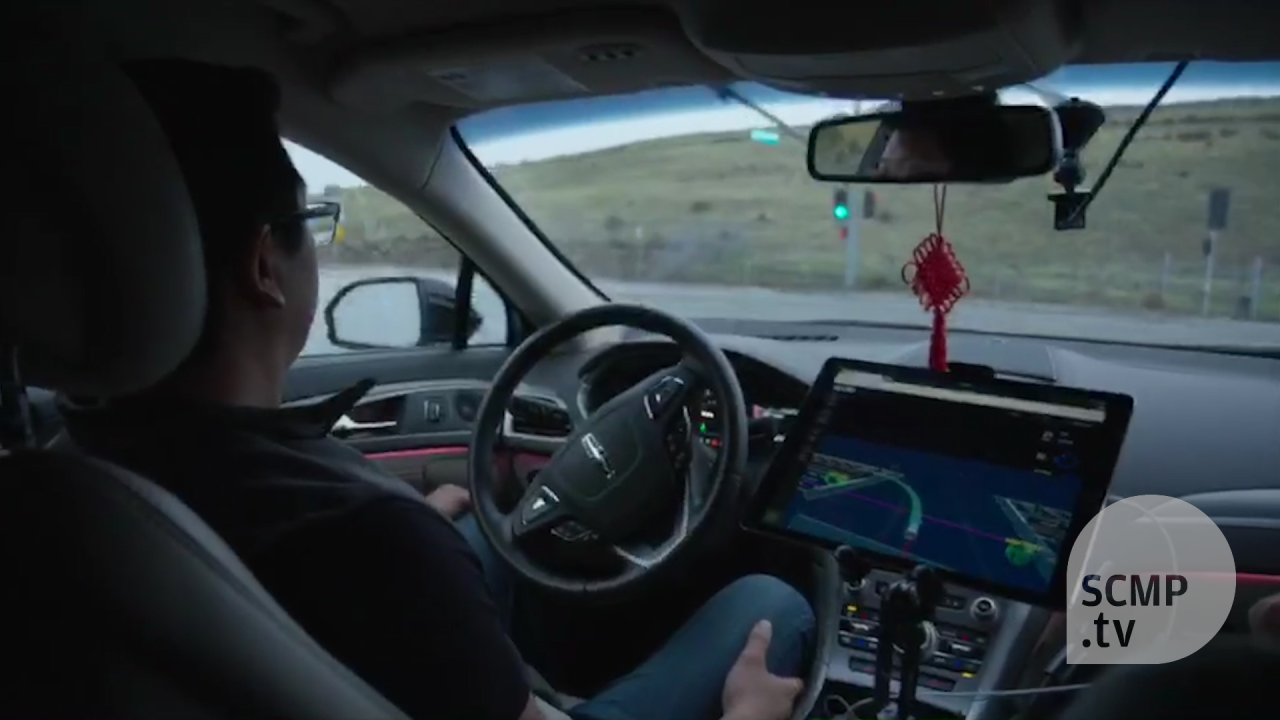
00:28
Baidu tests autonomous driving software at CES
Baidu Apollo
Chinese search engine giant Baidu began developing self-driving technologies under a special business unit in 2013 and rebranded it Baidu Apollo in April 2017.
By the end of 2019, Baidu Apollo had filed more than 1,800 patents for autonomous driving technologies in China and overseas, ranking it No 1 in China. It has been granted 120 Chinese government-issued licenses to test autonomous cars, racking up a total of 3 million kilometres of road tests.
The Beijing-based company made it into the top five global autonomous driving companies for the first time earlier this year, trailing only Google’s self-driving unit Waymo, Ford, and Cruise, according to Navigant Research’s annual survey that ranks players on strategy and execution.
Google’s self-driving sister, Waymo, gets first outside investors
Baidu’s Apollo robotaxi service was launched in Changsha, Hunan province, in September 2019, with an initial fleet of 45 autonomous cars. In April Apollo made the robotaxi service accessible via its regular search and navigation apps in addition to a stand-alone ride-hailing app.
Over the past year Baidu announced plans to build testing grounds and pilot operation zones for autonomous vehicles in cities including Chongqing, Shanxi province’s Yangquan city, and Anhui province’s Hefei city.
In May it completed construction of the world’s largest testing ground for autonomous driving and vehicle-to-infrastructure communication in Beijing’s Yizhuang Economic Development Zone.
Despite losing money for seven years, Apollo said its parent company remains committed to the industry and will support its ongoing efforts.
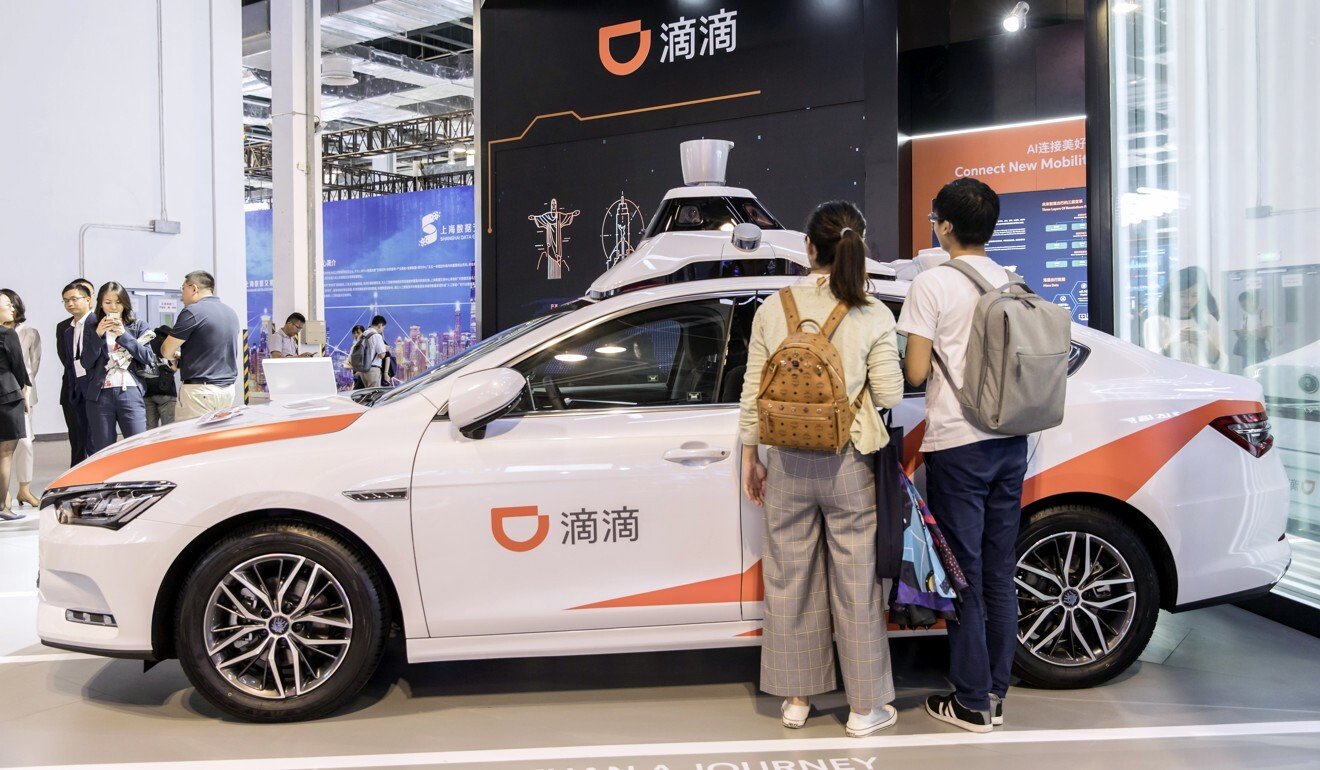
Didi Chuxing
Didi Chuxing, China’s largest ride-hailing platform, entered the red-hot autonomous driving market in June with the launch of a pilot robotaxi service in Shanghai.
After completing a pre-screening process that includes health checks, Shanghai residents can try out the robotaxi service in designated areas in the city’s Jiading District.
The launch came days after Didi announced an ambitious plan to deploy more than one million self-driving vehicles through its platform by 2030.
Didi’s autonomous driving subsidiary was launched in 2016 and the unit – which now employs more than 400 people – has obtained testing licenses in California and key cities in China including Beijing, Shanghai and Suzhou. It operates more than 100 autonomous vehicles.
Pony.ai
Toyota-backed Poni.ai currently has a fleet of 50 autonomous cars – including robotaxis and testing cars – operating in a 200-square kilometre designated area in Guangzhou.
The company, co-founded in 2016 by James Peng and Lou Tiancheng – former Silicon Valley-based engineers for Google’s autonomous driving unit and Baidu – has been running the robotaxi fleet in Guangzhou since December 2018.
Pony.ai reported that its volume of orders rose 33 per cent in the first quarter compared to the the last quarter of 2019 despite halting service for 24 days during the coronavirus outbreak in January and February, according to a report published on the company’s WeChat account last Sunday.
Co-founder and chief technology officer Lou said autonomous driving will only be considered a success if the safety driver can be removed from the vehicle and when mass deployment is achieved in several hundred cities around the world.
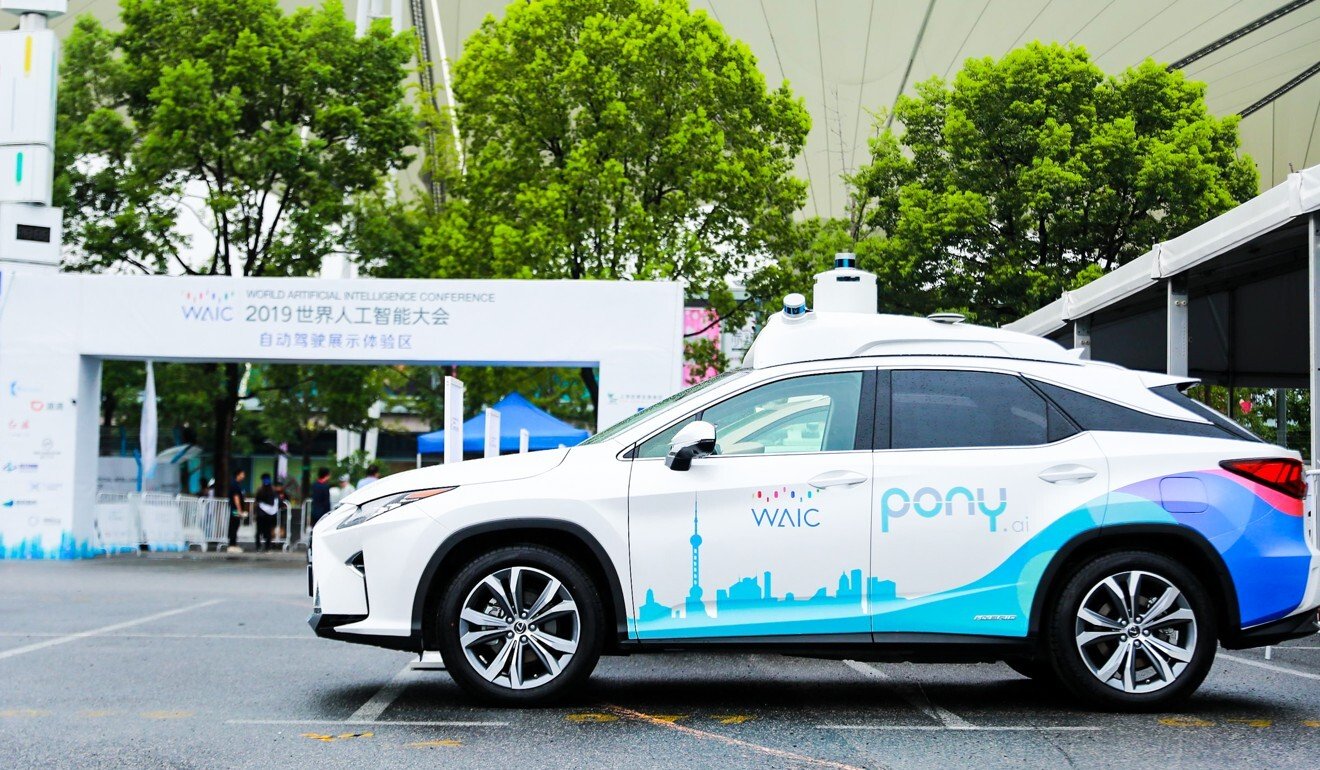
TuSimple
Chinese autonomous truck start-up TuSimple is taking on Google-backed Waymo to upend the logistics service industry as it develops commercial-ready, Level 4 autonomous driving solutions for long-haul heavy-duty trucks
The company, founded in 2015 and headquartered San Diego, recently struck a deal with American truck maker Navistar International to co-develop advanced self-driving semi-trailer trucks targeted for production by 2024.
TuSimple, backed by Nvidia, UPS and Chinese technology company Sina, operates a fleet of 50 autonomous trucks, which provides services to 18 customers including UPS and McLane.
WeRide
Founded in 2017 by Tony Han Xu, former chief scientist at Baidu’s autonomous driving unit, WeRide has focused on research and development (R&D) in Level 4 autonomous driving technologies.
It kicked off operations of a robotaxi fleet in its home base of Guangzhou in November 2019 after forming a joint venture with Baiyun Taxi Group, the largest taxi company in southern China.
By the end of June this year, the company’s 100 self-driving cars, of which 40 are robotaxis, have driven a total of 2.6 million kilometres in testing on open roads, accumulating troves of real-time traffic data useful to improve automation of the vehicles in complex real-world traffic situations.
Backed by Nissan, Renault and Mitsubishi, WeRide recently received approvals from Guangzhou transport and public security authorities to start testing fully driverless vehicles in designated areas of Guangzhou.
However, the cars are not really unmanned as a safety driver is still required to sit in the back seat with a brake pedal under their feet to stop the vehicle in case of emergencies.
In a move to tap into a larger user base, the company started offering robotaxi services via the Alibaba-backed AutoNavi app known as Gaode Maps, a popular mapping service that provides one-stop ride-hailing service.

